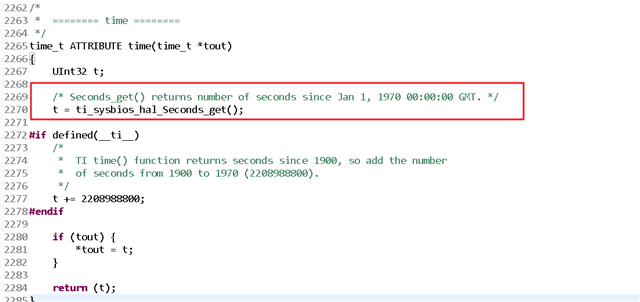Other Parts Discussed in Thread: SYSBIOS,
Hi team,
The customer uses the Seconds_set API in simplelink_cc13x0_sdk_4_20_02_07 to set the system time, and then uses localtime to obtain the year, month, day and other information. Has the Year 2038 problem been dealt with within this SDK?
Thanks & Best regards
Yolande


